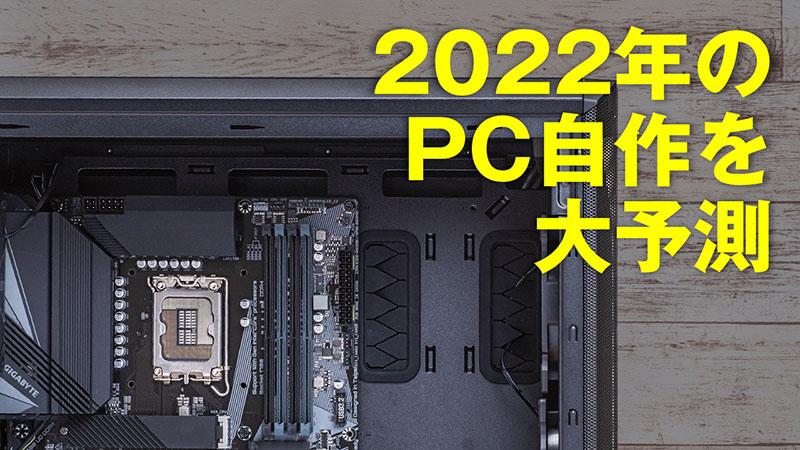"Snow Crash" is also a carrier for dystopia -like expression: Neil Stevensun's role of science fiction (Part 1)
Through about 40 years of career as a novelist, Neil Stevensun has built a complex vision of the future world.Looking back now, I feel that the eerie is foresight.Stevensun describes the possibility that globalization, environmental pollution, and technology capitalism may change our earth.In the process, readers have introduced the concepts such as cryptocurrencies, virtual reality, and meta spaers.
In the new work "Termination SHOCK" [Unworld Translation], in the near future, unusual billionaire will launch a radical plan to release sulfur into the atmosphere of the earth and delay the progress of climate change.It's a story that seems to happen.perhaps.
Adam Rogers, Senior Corespondent, spoke to Neil Stevensun at the annual conference of WIRED in the US and UK in November 2001.In this article, I will tell you about the "WIRED" US version of the popular podcast "GADGET LAB", which asked Adam about the story of Stevensun's person and his new science fiction novel.
Michael Karore (Michael) Hello, everyone.It is only for "gadget lab".This is Michael Carolet, a senior editor of "WIRED".
Lauren Good (Lauren) and Lauren Good, a senior writer of WIRED.
Michael This week, WIRED's senior chorespondent, Adam Rogers, is also participating.Adam, thank you for appearing this time.
I am honored to be with Adam Rogers (hereafter: Adam) colleagues from "Senior".
Michael Senior Adam (laughs), thank you.This week we will deliver a special program.This is a dialogue that Adam held with Neil Stevensoon, a highly evaluated science fiction novelist.This dialogue is at the "Re: WIRED" conference held last week.
Speaking of Neil Stevensung, many people know in works such as Snow Crash, Cryptonomicon, or Trilogy Baroque Cycle.My personal favorite is the feature -length essay, "The first command line with the thickness".His latest work, Termination SHOCK, released in November 2001, is a story of the near future, almost destroyed by climate change.
Adam, you recently talked to Neil Stevensung for an article written in the WIRED US version.And I just talked to him at the Re: WIRED conference last week, and listen to the content immediately after this, but can you introduce some important points?In the two conversations, you talked about climate change.Do Neil believe that we are all destined to be destroyed by climate change?
To be honest, it was difficult to ask Neil what would happen in the future.He doesn't talk much for a writer who writes Spural fiction and science fiction.The Synopsis of Termination SHOCK is that a billionaire is an attempt to be called "Solar Geo Engineering (solar engineering)" without the permission of the government.By releasing millions of tons of sulfur into the atmosphere and cooling the earth, the climate change is fundamentally solved.This is a plot that has a huge impact on geopolitical and ecology.
But when asked, "Do you really think it will happen? And do you think it's a desirable thing?" Neil said, "No, I don't think the millionaires actually do so. The protagonist of this book is the protagonist of this book.It is not a millionaire who leads tech companies, but a person who made goods in the oil industry. My intention is not to clarify the position of the act, it will probably happen, and it will probably happen.I'm trying to tell the reader what will happen. "
To be honest, I was a little surprised at this.This is because many of Neil's works are full of technology and criticism of humans who make full use of it.In particular, the trend is strong for those who are popular with certain technologists.Neil is like Silicon Valley's guardian saint, but many of his books are not a parody, but how skeptical is written in a skepticism.think.
Certainly, "Snow Crash" was his first masterpiece around 1992 or 1993, creating the word "Metavar".But that wasn't the case, "Someday people will make this a great app and make a lot of money."He was warning on what he was trying to wake up.So it was very interesting.In the dialogue, there are both places where Neil speaks frankly and what to do about whether humanity is ruined and what to do.
Lauren: At the beginning of the dialogue, you are asking him about Metavaras and its commercialization.And I read a passage of Snow Crash.The tone was, "Please tell us your current thoughts about this dystopia -like novel I once wrote."Neil actually said that when he wrote about Metavas, he was paying attention to this idea.
Adam Yes, what the readers feel from the work is individual, but I didn't think that book was written in a neutral position at the time, and I don't think it's still neutral.Neil's very interesting is that he wrote an article in WIRED and that he had both WIRED articles.
Some articles that he contributed to WIRED was published about 10 years ago.He was a famous article written as a call to other science fiction writers, saying, "The science fiction is too dystopia and the post -apocalypse (the world after the end) has become heavy. We are.He returned to the roots of the SF Golden Age, saying a major technical and scientific solution to the survival of humanity, such as climate change, "should be presented with a major technical and scientific solution.
It was a serious problem that the science fiction did not play a role in the SF community, such as his SF community, and for the WIRED community, argued that science fiction did not play its original role.SF writers have to consider bigger things.Engineers, science technicians, millionaires, and entrepreneurs do not have a great idea of scale, so they need to think about big things for them.Just as they were inspired by Arthur C. Clark and Isaac Asimov, they should be inspired by science fiction writers this time.The writers at the time had a problem for another reason, but that was Neil's claim.
But I and others want to be in this book's published event, "Is this your intention?When asked, Neil said, "I tried to draw how complicated this problem, and I don't claim my position."He says, what it means and how we should deal with.it's difficult.You may have been asking a better question.

Michael I think you were asking a very good question, especially with people like Neil.We all have been reading his book since he was a teenager.And, as you said, his philosophy is permeating in everyday life, whether or not we are aware.It would be cool to interview a writer who had a great influence on yourself.
Adam Yes, that's another story.Or rather, that's right.I'm reading all the Neil books, and people often ask if they like the book or not.And the only thing I can answer is, "I can't answer it."Because it is natural for me to read.I have read all Neil books since 1992.What I still remember is that in this interview, I showed him on the camera and shown it to him, which was a book I bought myself and went to a bookstore.I thought, "What is this?"And I read it.The first 30-40 pages of Snow Crash are one of the best in science fiction novel history.
I've been reading his book since then.It's like when people asked, "How was the new season of Doctor Foo?"What should I say ... I can't answer.It's a program that I can't help but watch.So either is fine.I don't know if other people like it, but it suits me.
In fact, Neil was one of the first science fiction writers he first interviewed when I started as a journalist.At that time, I was asking science fiction writers about nerd culture built in the 90s.Neil was one of the first people who got excited when I got a phone call.So, oh, this dialogue was about to decorate the beginning and end of my career.I hope it is not.
Michael, of course, please play an active part a little longer.
Lauren Yes, what you've said now is also the goal of this podcast.It is said that everyone thinks, "Well, what do you do?"Now, here, we will send you a dialogue between the writer Neil Stevensun and Adam, which was included in "Re: Wired".
●
Adam everyone, welcome to the next session of Re: WIRED.I am Adam Rogers, a senior chorespondent of WIRED.And I'm glad to welcome Neil Stevensun, one of my favorite science fiction writers.Neil, thank you very much.
Neil Stevensun (hereinafter Stevensung) Hello Adam.I am honored to be able to appear.
Adam next week, we will release a new book called "Termination SHOCK".
It's always Tuesday to put out a Stevensung book, for some reason it's like an ancient ritual.
Adam This session is almost a new book, but I would like to start with the first question, and in the last few weeks I would like to ask you.This is "Snow Crash" that I purchased in 1992.
Stevensun Oh, it's wonderful.
Adam This is a nostalgic book for me, and in the summer of the year it was released, I left the part -time job I was doing at that time early and went to a bookstore to get it.When the goggles are installed, the image is projected on the screen, and the headphones have stereo sounds, and today, the experience called "virtual reality" is probably explained over a few pages, and there is a paragraph on page 22 on page 22.。The hero's name is Hiro.
This is your coined word.So, I'm sorry to explain this for a long time, but the word meta spheres is now established, not the "warning" you would have intended, but at least as the next big business opportunity in social media.I don't think you are involved in such a business, but please tell us what you think of whether people read this book and use the word "meta its".How do you feel that this coined word is used?
Stevensun As many people point out, the overall tone of this book is roughly dystopia, but originally intended to draw a dystopia world view with humor elements.was doing.At the same time as a dystopia, it is also a detaper -like expression that has become a regular theme in the genre of science fiction.So, as people are actively discussing Metavas in the last few weeks or months, those who are skeptical are the dystopia nature of Metavas, which are currently working on a number of high -tech companies.It tends to point out that there is some clue or something.I understand that way.
In "Snow Crash", I don't think Metavas itself is a dystopia or utopia.In other words, it is just something in the drawn world.People are in the work and frequently use Metavar as a way to get out of the gloomy dystopia life that they are sending.That's exactly what Hiro is doing in the text you read.He lives in a container warehouse near the airport.But in Metavas, he can have a more fulfilling and beautiful experience.So, I think the meta its drawn in this book are, in a sense, neutral.It's neither dystopia nor utopia, but people get catharsis.
Adam, so I would like to ask for such neutral, dystopia or utopia.In fact, you can see that Snow Crash is a science fiction because someone built a house for Hiro near the airport, and of course it is impossible.This has not been realized yet.Hiro can get a place to live (in Metavas).Obviously, your prediction ability at the time seemed to be limited.
Stevensun Yes, it was incomplete.
* Click here for the second part








